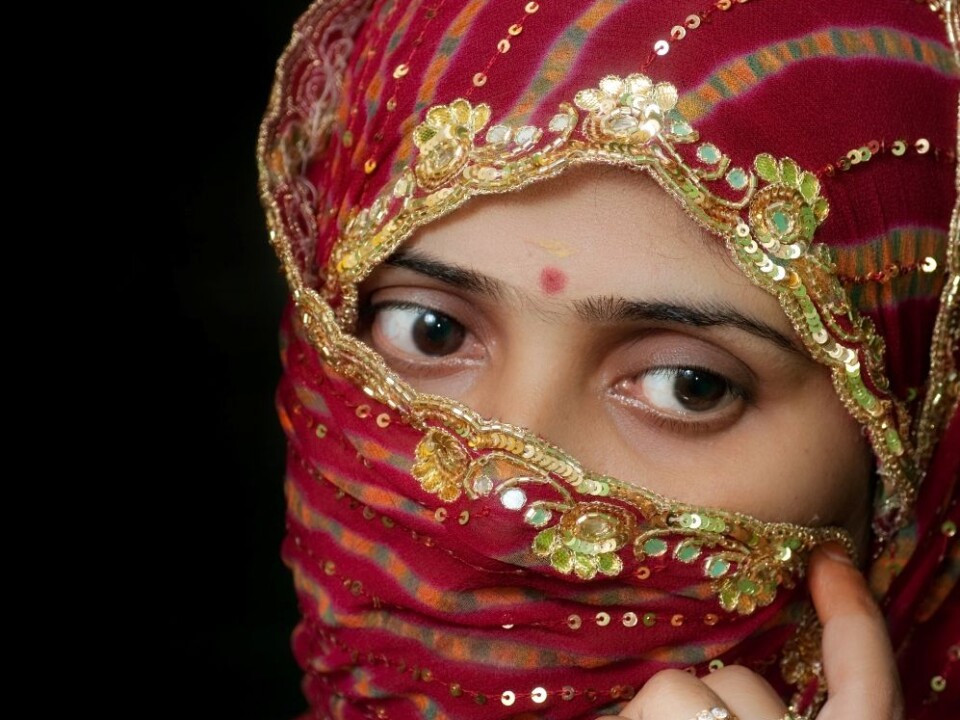
Caste system influences education choices, in Norway
Many Norwegians of Pakistani and Indian origin choose prestigious courses such as law, medicine and engineering, and their decisions are influenced by the family’s caste status – even if they are miles away from South Asia.
Denne artikkelen er over ti år gammel og kan inneholde utdatert informasjon.
Indian or Pakistani families living in Norway continue to be influenced by their caste status in their land of origin. The caste system also affects their position in local minority communities and what subjects their Norwegian-born children decide to study.
Mariann Stærkebye Leirvik has conducted in-depth interviews with 23 men and women aged between 17 and 29 who were born and raised in Norway, to parents who had migrated from either Pakistan or India.
Leirvik conducted her study at the University of Oslo, but she now works at the The Norwegian Police University College.
A high caste status can be a motivation killer
She found that belonging to a high caste can have a negative influence on children’s academic ambitions and performance. The family’s status sometimes gives children an excuse to lean back a bit and put in less effort at school than their classmates, as they have already 'made it'. Parents may fail to motivate their children to pursue sought-after careers such as law, medicine and engineering as they look to past glories rather than the future.

These families fail to realise that their caste status is of little value in Norwegian society. They continue living their lives as if their high position in the caste hierarchy is a guarantee for a prosperous future.
Leirvik calls this a “Don Quixote effect”. The term refers to the classic novel in which a middle-aged man’s obsessive reading of chivalry books makes him see the world as if he were a knight.
A high caste status can also be a resource
Several of the interviewed young adults said high-caste families care most about castes after settling in Norway.
In some of these families, the high caste status is used as a motivational drive for their children: they are encouraged to study prestigious subjects to live up to and validate the family’s status.
Unlike those hit by the Don Quixote effect, these families have accepted that the value of their caste background is greatly reduced in Norway.
Low-caste immigrants with a drive
British research shows that low-caste Pakistanis did not only leave their country when they migrated to Europe, but also the low-caste label that hindered them from upward social mobility.
They are still suffering from discrimination due to their immigrant status, but they are also free from the constraints of the low-caste status. This gives them a drive to work hard to accomplish things they could not achieve in Pakistan, and many of them have succeeded.
Leirvik found support for this in her interviews. One respondent said the go-getters in school are from lower caste families, and that they are better integrated in Norwegian society than high-caste youths.
“People from low castes have this extra drive as they have the opportunity to break with the social structure of their home country,” says Leirvik.
Families from the countryside: strict and traditional
Pakistani immigrants from the countryside are often concerned about safeguarding women’s honour. This is often synonymous with a strict upbringing and limited freedom for young girls.
Such girls typically do well in school as a strict upbringing can mean lots of time for homework and high expectations for their academic achievements, and some of them go on to higher education.
But sometimes parents decide that their daughters’ honour is best protected by marrying the “right” man, at an early age. These girls are not allowed to continue their studies and end up as more traditional housewives.
Studying political science is a “luxury”
Several of the young adults said getting a vocational education with good prospects for employment is essential as they are second-generation immigrants and their parents struggled to find jobs.
They don’t want their children to experience insecurity, explained one respondent, adding that he feels he can’t study subjects such as “political science, history, art, and stuff like that. That’s luxury, and not for everyone.”
The researcher says the young people avoid such areas of study as they “aren’t safe or prestigious enough,” but she thinks this might be different for their children.
Moving up, showing off
Academic achievements are sometimes celebrated with parties where one purpose is to give parents a chance to show off their children’s achievements and their successful upbringing.
It is also common for parents to compare their children’s grades with those of other children. Leirvik explains that this is a reflection of a competitive culture in which “winners and losers affect the family’s position in the minority community.”
The competitiveness also alludes at the grand plans that many parents lay out for their children – it is not uncommon for kids to be told from a very early age that they are going to become doctors or engineers.
“Social mobility is important to everyone in Norway, but for these families, the desire to move up the ranks is much more vividly expressed,” says Leirvik. “That’s where they differ from most Norwegian parents.”

































